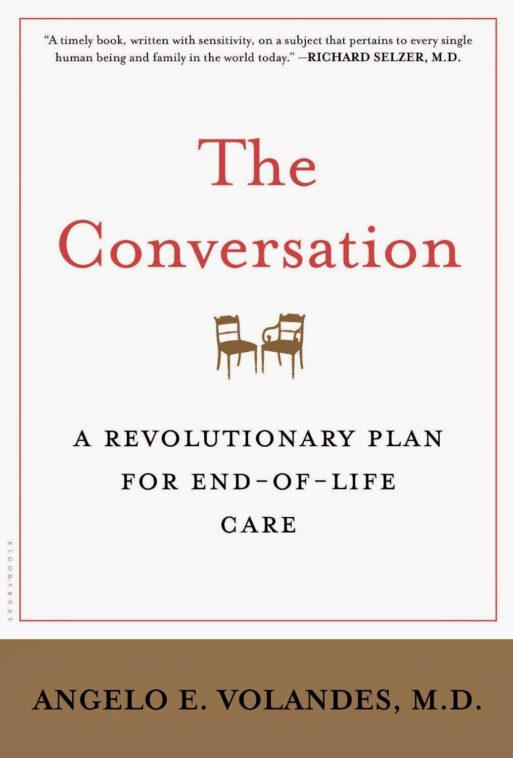 Metastatic lung cancer had wreaked havoc on 78-year-old Taras Skripchenko’s body, yet Dr. Angelo E. Volandes had the impossible task of trying to save his life.
Metastatic lung cancer had wreaked havoc on 78-year-old Taras Skripchenko’s body, yet Dr. Angelo E. Volandes had the impossible task of trying to save his life.
The Ukrainian man had worked in coal mines his entire life, which would later prove fatal. As the cancer spread, Taras lost his ability to communicate his wishes to his doctors. With no family to consult, they had no choice but to give him every treatment possible, no matter how painful.
When Taras stopped breathing, Dr. Volandes and the other doctors on-call rushed to the oncology ward to bring him back to life. They gave him chest compressions until they could hear his ribs crack beneath their hands. They stuck multiple needles in and around his heart to draw out fluid that was constricting his blood flow. They inserted eight tubes into his body: one for his lungs, two for his veins, one for an artery, one for his stomach, one for his bladder, one for his rectum and one for his heart.
After all of that, Taras died 48 hours later.
Dr. Angelo Volandes calls this a turning point in his medical career, and one of the greatest motivations for writing The Conversation. The book follows his experiences working in hospitals and seeing the physical and mental anguish patients experience when doctors don’t emphasize quality of life over quantity.
The author frames his argument through harrowing stories from the hospital alongside statistics about how happy people are with their end-of-life care.
What’s clear from reading The Conversation is that patients are in crisis. Doctors mince words to give patients hope for survival against insurmountable odds. Patients refuse to acknowledge just how sick they are when facing a terminal illness. Family members are too afraid to ask their loved ones how they want to die. The result is a cycle of denial that traumatizes rather than heals.
Doctors take a Hippocratic oath to do no harm to patients, and yet when they neglect to have “The Conversation” with patients about what it means to have a “good death,” they risk undermining this oath.
So, what does it mean to have “The Conversation”? Dr. Volandes recommends talking about these questions:
1. What is important to you, and what makes you happy?
2. What fears do you have about sickness and medical care?
3. Are there any treatments that you believe would be too much for you?
4. Do you have any beliefs that guide your ideas about medical care?
Dr. Volandes says these are just the start of what should be a constant conversation you have with your doctor and loved ones about your wishes. He urges everyone to also think about these common issues:
– Whether you want to live longer no matter what, or if quality of life is more important to you
– Whether there are any important events you have to see before you die (e.g. weddings or birthdays)
– How much pain you are willing to go through, and whether you’re willing to tolerate some pain if it means you can still interact with other people
– Whether you want to be at home or in a hospital when you die
The stories in The Conversation center around people who never got the chance to ask themselves or others these important questions. Rather than waiting for these conversations to come up organically, Dr. Volandes empowers his readers to initiate them.
A few minutes of discomfort could save you or someone else weeks, months or even years of heartache and pain. All you have to do is work up the courage to ask.

 The Conversation by Angelo E. Volandes, M.D.
The Conversation by Angelo E. Volandes, M.D.



 Recovering Cremation Remains After the Los Angeles Fires
Recovering Cremation Remains After the Los Angeles Fires
 “As Tears Go By” by Marianne Faithfull
“As Tears Go By” by Marianne Faithfull















